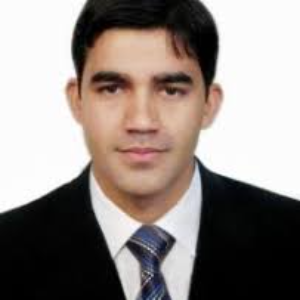Abstract:
Plasmonic nanostructures such as Ag, Cu, and Au nanostructures embedded in a dielectric host are promising materials for the various fields of Modern Science and Nanotechnology including optics, photonics, and SERS applications. The Plasmonic Cu nanostructures were embedded in a dielectric glass host by ion-exchange method followed by thermal treatment in an oxidizing atmosphere. The results verified the confirmation of plasmonic nanostructures after thermal heat treatment using UV-Vis absorption spectroscopy, X-ray diffraction (XRD), Transmission Electron Microscopy (TEM), X-Ray photoelectron spectroscopy (XPS), Raman spectroscopy, Time of Flight secondary mass spectroscopy (TOF-SIMS), Z-scan technique, and these nanostructures were further studied for SERS applications. QUASES-Tougaard simulation results confirmed that the plasmonic metals such as Cu atoms formed islands near the surface of the glass matrix. The observed growth mechanism of plasmonic nanostructures was studied using Ostwald’s ripening process during the thermal heat treatment. The Wagner plot with modified Auger parameters (MAP) was thoroughly studied for the surface properties of embedded plasmonic nanostructures. Surface-enhanced Raman spectroscopy (SERS) technique was widely used to characterize the plasmonic nanostructures under the influence of thermal treatments and the highest Raman enhancement was observed for substrates with larger particle sizes.
Biography:
Mr. Promod Kumar received his M.Tech. degree in Nanoscience and Technology (NST) in 2010 from Guru Gobind Singh Indraprastha University, Kashmere Gate, New Delhi, India. He obtained his Ph.D. degree in Plasmonics from National Institute of Technology, Hazratbal, Srinagar (J&K), India in 2015. He has also received the best oral presentation award in the National/International Conferences. Promod Kumar is also awarded the certificate of Merit in the National Seminar on Recent Advances On Luminescent Materials (RALM-2015) organized by the department of Chemistry, Annamalai University, Annamalainagar- 608 002, India during January 23-24, 2015. He received Distinguished Researcher in Plasmonics organized by The International Research Leadership Award Sponsored by the International Research Councils (RULA AWARD). Promod Kumar of University of the Free State, Bloemfontein-9300, Republic of South Africa has been awarded the Ist BEST ORAL presentation entitled “ZnO:Rb Nanostructures for Photocatalytic Applications” in one day International e-Conference on “Ethical and Quality Aspects in Nanoscience and Nanotechnology Research” (ICEQANNR-2020) organized by Department of Physics, Vasantrao Naik Art’s, Commerce and Science College, Shahada in collaboration with Kavayitri Bhahinabai Chaudhari North Maharashtra University, Jalgaon on 20th June 2020.
Promod Kumar of University of the Free State, Bloemfontein-9300, Republic of South Africahas been awarded the Ist BEST ORAL presentation entitled “Plasmonic Nanostructures Embedded in a Dielectric Host for SERS and Optical Limiting Devices” in “International e-Conference on Innovative Functionalities of Advanced Materials (ICIFAM-2022)” held on 16th & 17th June, 2022 organized by Dambi Dollo University, Ethiopia.
He has published more than 40 research articles including book chapter in international journal of repute and presented more than 40 articles in National as well as International conference. He has more than 6.5 year’s Post-doctoral research experience from the University of the Free State, Bloemfontein, South Africa. Presently he is working as a Senior Researcher from the same university and also working as a visiting scientist in Central University of technology, Bloemfontein South Africa. His research interest includes plasmonic metamaterials, conducting- semiconducting thin films, heterostructures, Plasmonic based hybrid nanostructures for SERS applications, Plasmonic Photocatalysts for environmental remediation, Glass doped with Noble metal nanoclusters for Nonlinear optical devices, Graphene-based hybrid nanostructures for solar cell applications, sensors, super-capacitor, oxides nanomaterial’s, DMS and magnetic nanostructures, structural and optical properties of hybrid materials for superior photovoltaic applications.


